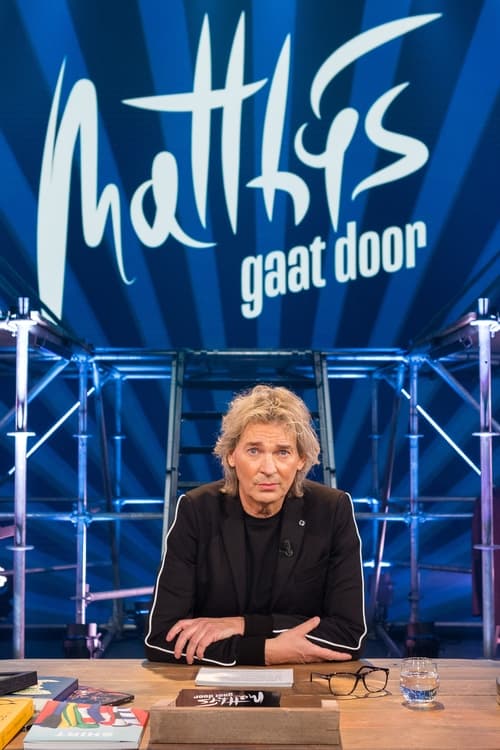
Ask Your Own Question
What is the plot?
In Episode 53 of "Lisa," the episode opens with Lisa sitting at her kitchen table, staring blankly at a half-finished cup of coffee. The morning light filters through the window, casting a warm glow on her face, but her expression is one of deep contemplation. She is grappling with the aftermath of a recent argument with her best friend, Sarah, which has left her feeling isolated and uncertain about their friendship.
The scene shifts to Sarah, who is in her own apartment, pacing back and forth. She is visibly upset, replaying the argument in her mind. She feels betrayed by Lisa's decision to prioritize her new job over their plans. Sarah picks up her phone, hesitates, and ultimately decides not to call Lisa, fearing that it would only escalate the situation.
Back at Lisa's place, she receives a text from Sarah, which simply reads, "We need to talk." Lisa's heart sinks as she realizes that they cannot avoid the confrontation any longer. She takes a deep breath, steeling herself for what is to come, and heads out to meet Sarah at their favorite café.
At the café, the atmosphere is bustling with chatter and laughter, contrasting sharply with the tension between the two friends. Lisa arrives first and sits at a corner table, nervously tapping her fingers on the surface. When Sarah arrives, the air is thick with unspoken words. They exchange awkward pleasantries before diving into the heart of the matter.
The conversation quickly escalates as both women express their frustrations. Lisa feels that Sarah is not supportive of her career ambitions, while Sarah accuses Lisa of abandoning their friendship. The emotional stakes rise as they both reveal deeper insecurities--Lisa's fear of failure and Sarah's fear of being left behind. Tears well up in Sarah's eyes as she pleads for Lisa to understand her perspective.
In a moment of vulnerability, Lisa admits that she has been feeling overwhelmed by the pressures of her new job and the expectations that come with it. This revelation softens the tension, and Sarah, still hurt but more understanding, shares her own struggles with feeling unimportant in Lisa's life. They both realize that their friendship is worth fighting for, and they agree to communicate more openly moving forward.
The scene transitions to a montage of Lisa and Sarah spending time together over the next few days, rekindling their bond. They laugh, share meals, and support each other in their respective endeavors. However, the peace is short-lived as Lisa receives a call from her boss, who informs her of a major project that requires her immediate attention, potentially conflicting with a planned trip with Sarah.
Lisa is torn between her professional responsibilities and her commitment to her friend. After a sleepless night, she decides to prioritize the project, believing it will ultimately benefit both her career and her friendship in the long run. She texts Sarah to explain the situation, but the message is met with silence, leaving Lisa feeling anxious and guilty.
The episode culminates in a climactic confrontation when Sarah unexpectedly shows up at Lisa's workplace, visibly upset. She confronts Lisa about her decision, accusing her of choosing work over their friendship once again. The tension reaches a boiling point as Lisa defends her choice, arguing that she is trying to build a future for both of them. Sarah, feeling betrayed, storms out, leaving Lisa devastated.
The final scene shows Lisa alone in her office, staring at her computer screen, the weight of her choices heavy on her shoulders. She reflects on the day's events, realizing that while she is pursuing her career, she may be losing the most important relationship in her life. The episode ends with Lisa looking out the window, a mix of determination and sorrow etched on her face, as she contemplates her next move.
What is the ending?
In the ending of "Lisa," Season 1, Episode 53, Lisa confronts her past and makes a pivotal decision about her future. The episode culminates in a tense confrontation with her estranged father, leading to a moment of emotional catharsis. Lisa ultimately chooses to embrace her independence, leaving behind the toxic relationships that have held her back. The episode closes with her stepping into a new chapter of her life, symbolizing hope and resilience.
As the episode unfolds, the scene opens in a dimly lit room where Lisa sits alone, her expression a mix of determination and anxiety. The weight of her past looms heavily over her, and the camera captures the flickering shadows that dance across the walls, mirroring her internal struggle. She reflects on her childhood memories, filled with both warmth and pain, as she prepares to confront her father.
The scene shifts to a tense confrontation at a local diner, where Lisa's father, a rugged man with a hardened exterior, sits at a booth, nursing a drink. The atmosphere is thick with unspoken words as Lisa approaches him, her heart racing. The diner is bustling with life, but for Lisa, time seems to stand still. She takes a deep breath, steeling herself for the conversation that could change everything.
As they exchange words, the dialogue is sharp and raw. Lisa's voice trembles with emotion as she expresses her feelings of abandonment and betrayal. Her father, initially defensive, begins to show cracks in his tough facade. The camera zooms in on his face, revealing a flicker of regret in his eyes. This moment is pivotal; it encapsulates years of unresolved tension and pain.
The scene transitions to a flashback, where we see a younger Lisa playing in a sunlit park, laughter echoing in the background. This juxtaposition highlights the stark contrast between her innocent childhood and the harsh reality of her current situation. The flashback serves as a reminder of what Lisa has lost and what she longs to reclaim.
Returning to the diner, the confrontation reaches its climax. Lisa, fueled by a newfound strength, declares that she will no longer allow her father's actions to define her. The emotional weight of her words hangs in the air, and the diner patrons momentarily pause, sensing the gravity of the moment. Her father, visibly shaken, finally acknowledges his mistakes, offering a half-hearted apology that feels insufficient to Lisa.
In a moment of clarity, Lisa makes a decision. She stands up, her posture radiating confidence, and tells her father that she is choosing to move forward without him. The camera captures her resolute expression as she walks away from the booth, leaving her father behind. This act symbolizes her breaking free from the chains of her past.
The final scene takes place outside the diner, where the sun is setting, casting a warm glow over Lisa. She takes a deep breath, feeling the weight lift off her shoulders. The world around her feels vibrant and full of possibilities. As she walks down the street, a sense of hope fills the air, and the camera pans out, showing her silhouette against the colorful sky.
In the closing moments, we see Lisa's friends waiting for her at a nearby park, their faces lighting up as they spot her. They embrace her, and laughter fills the air once more. This scene signifies the support and love she has in her life now, contrasting sharply with the isolation she felt before. The episode ends on a note of optimism, leaving viewers with a sense of closure for Lisa's journey while hinting at the new adventures that await her.
Is there a post-credit scene?
In "Episode 53" of the TV show "Lisa," there is indeed a post-credit scene that adds an intriguing layer to the episode's narrative.
As the credits roll, the screen fades to black before transitioning to a dimly lit room filled with shadows. The camera slowly pans across the space, revealing a cluttered desk strewn with papers and photographs. The atmosphere is tense, underscored by a low, suspenseful score that heightens the sense of mystery.
In the center of the desk, a single photograph catches the light, showing Lisa with a group of friends, all smiling and carefree. However, the focus shifts to a second photograph tucked away beneath the others, which depicts a figure in the background, partially obscured but clearly watching Lisa from a distance. The figure's expression is unreadable, shrouded in ambiguity.
Suddenly, the sound of a door creaking open breaks the silence, and a shadowy silhouette enters the room. The camera does not reveal the person's face, but their posture suggests a mix of determination and apprehension. They approach the desk, their hand reaching out to touch the photograph of Lisa, lingering for a moment before abruptly pulling back as if struck by a wave of emotion.
The scene ends with a close-up of the figure's hand, trembling slightly, before the screen cuts to black, leaving viewers with a sense of foreboding and curiosity about the identity of the figure and their connection to Lisa. This post-credit moment effectively sets the stage for future developments, hinting at unresolved tensions and potential conflicts that may arise in subsequent episodes.
How does Lisa's relationship with her family evolve in this episode?
Throughout Episode 53, Lisa grapples with her family's expectations versus her own desires. A particularly poignant scene occurs during a family dinner where Lisa's parents express their disappointment in her recent choices. This leads to a heartfelt discussion where Lisa reveals her aspirations, showcasing her struggle for independence and the emotional weight of familial pressure.
What internal conflict does Lisa face regarding her career choices in this episode?
In Episode 53, Lisa faces a profound internal conflict about her career path. She is torn between following a safe, conventional route that her parents endorse and pursuing a more creative, risky endeavor that aligns with her true passions. This struggle is depicted through her contemplative moments, where she weighs the pros and cons, reflecting her fear of failure against her desire for fulfillment.
What significant event occurs between Lisa and her best friend in Episode 53?
In Episode 53, a pivotal confrontation arises between Lisa and her best friend, where unresolved tensions come to a head. Lisa feels betrayed after discovering her friend has been keeping secrets about their mutual acquaintances, leading to an emotional exchange filled with anger and hurt. This moment is crucial as it tests their friendship and forces Lisa to confront her feelings of trust and loyalty.
What role does the new character introduced in Episode 53 play in Lisa's journey?
In Episode 53, a new character, a mentor figure, is introduced who significantly impacts Lisa's journey. This character encourages Lisa to pursue her passions and challenges her to step outside her comfort zone. Their interactions are filled with warmth and wisdom, providing Lisa with the guidance she desperately needs, which ultimately helps her to grow and make important decisions.
How does the climax of Episode 53 affect Lisa's character development?
The climax of Episode 53 is a turning point for Lisa, where she must make a critical decision that will shape her future. In a tense moment, she stands up for herself in front of her peers, asserting her identity and choices. This act of bravery marks a significant shift in her character development, showcasing her growth from a passive individual to someone who actively takes charge of her life, embodying newfound confidence and resilience.
Is this family friendly?
In "Episode 53" of the show "Lisa," there are a few elements that may be considered potentially objectionable or upsetting for children or sensitive viewers.
-
Emotional Conflict: The episode features intense emotional scenes where characters experience significant distress, which may be overwhelming for younger audiences.
-
Family Struggles: There are themes of familial tension and conflict that could resonate deeply, potentially causing discomfort for viewers who are sensitive to family dynamics.
-
Mature Themes: The episode touches on themes of loss and betrayal, which may be difficult for children to fully understand or process.
-
Visual Tension: Certain scenes may include visual representations of conflict or distress that could be unsettling, depending on the viewer's sensitivity to such imagery.
These aspects contribute to a narrative that, while rich in character development and emotional depth, may not be suitable for all younger viewers.

































